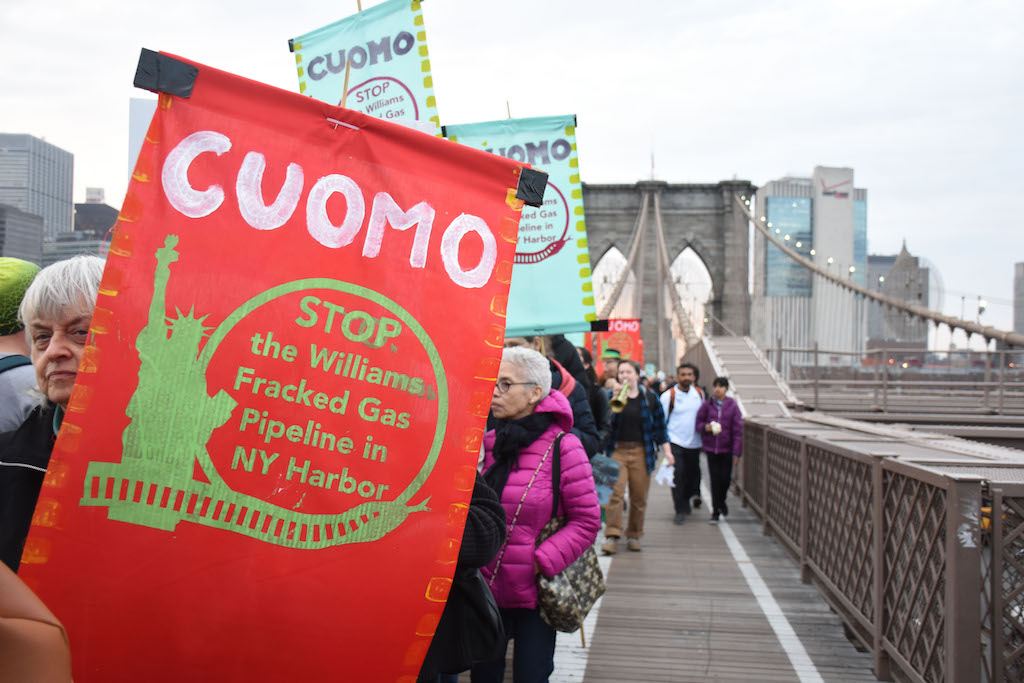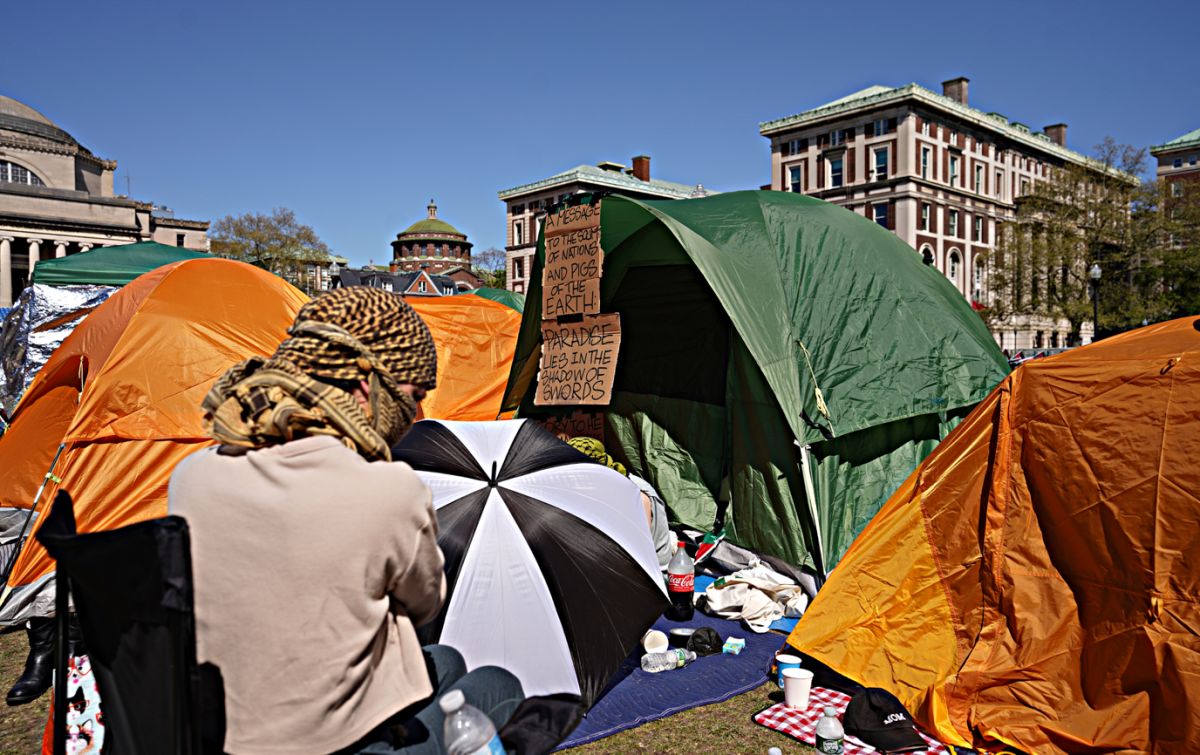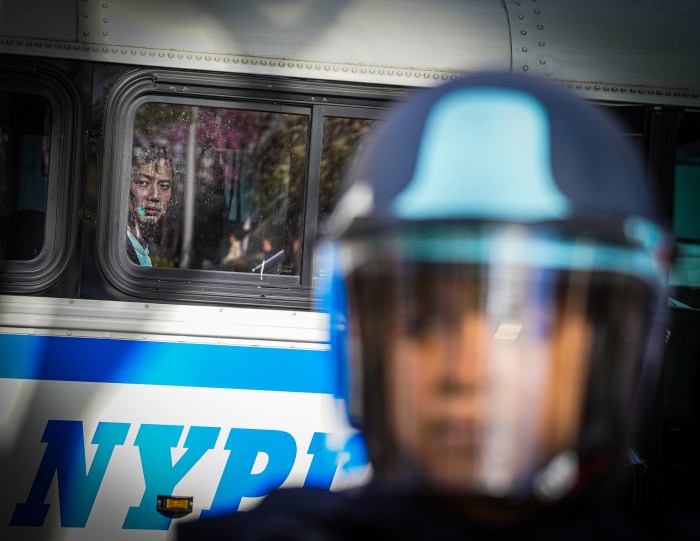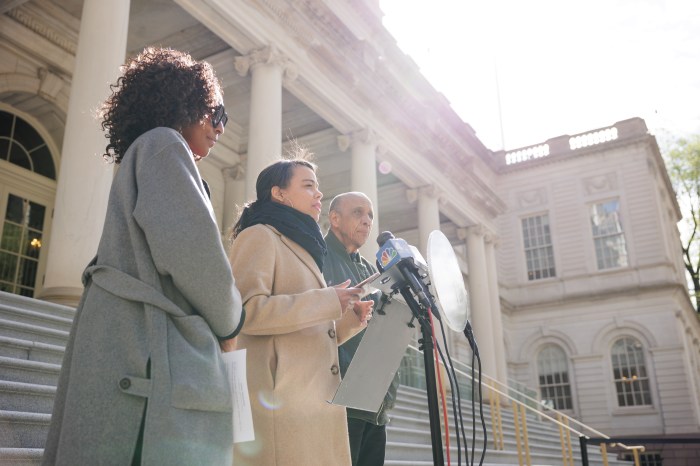BY ALEJANDRA O’CONNELL-DOMENECH | Politicians and environmental activists called on Governor Cuomo to stand by his fracking ban and halt the Williams Pipeline at a rally outside City Hall last Thursday.
The pipeline, by Oklahoma-based energy company Williams, would carry hydrofracked methane gas from Pennsylvania’s shale fields to New York City beneath the lower bay of New York Harbor. National Grid would use the fuel to heat homes in Staten Island, Queens, Brooklyn and Long Island.
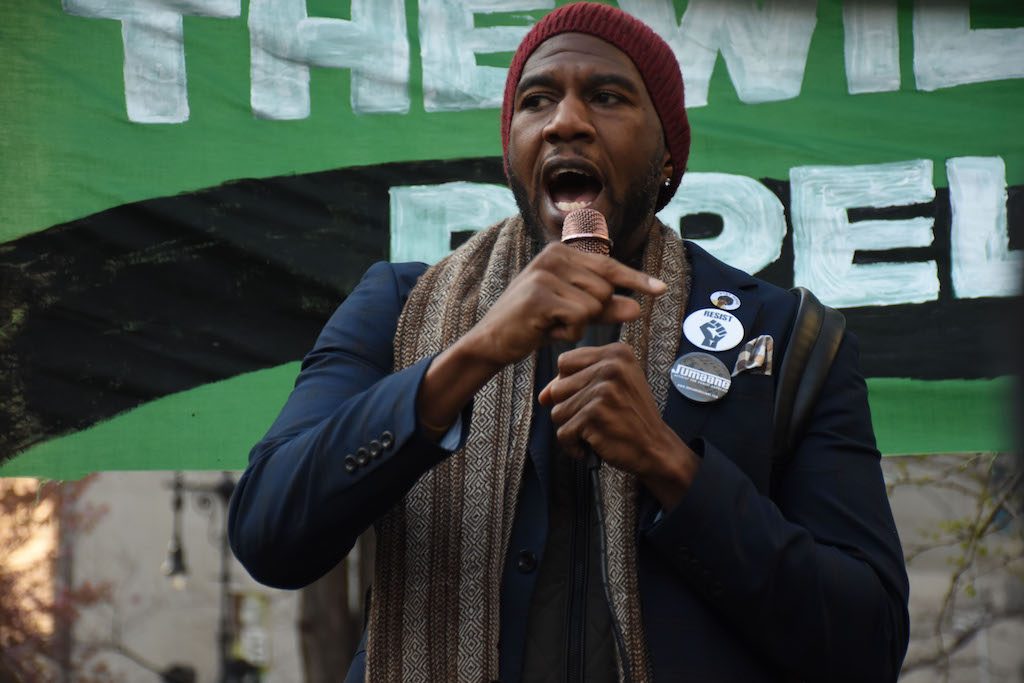
According to Earther, the pipeline is a 47-mile expansion of the company’s Transco Pipeline and would link existing infrastructure in New Jersey to Far Rockaway.
President Donald Trump issued two executive orders that would speed up oil and gas pipeline projects. Demonstrators said that has intensified the urgency for Cuomo to take a stand against this particular project.
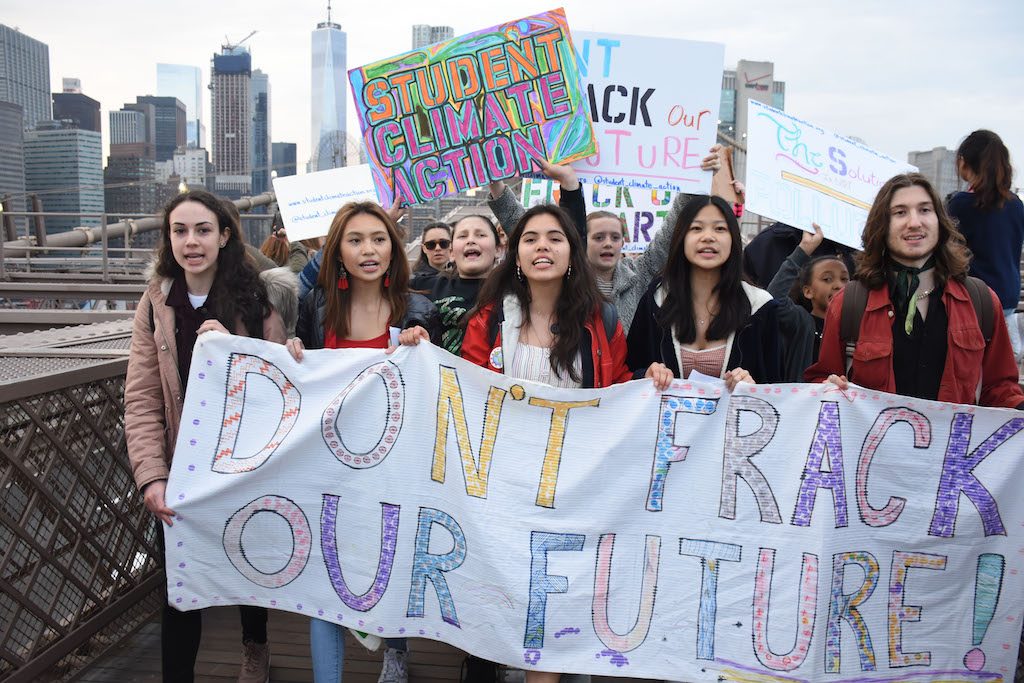
“When I was in Albany running for lieutenant governor, I stood in front of a place [Cuomo] wanted to build a fracked-gas plant,” Public Advocate Jumaane Williams told the crowd of more than 100 protesters.
“Governor,” Williams said, “we are at a time when words are not enough. We have to see action.”
The crowd chanted and waved blue and red banners before marching over the Brooklyn Bridge.
Cuomo spoke out publicly against Trump’s executive orders, banned fracking in New York State in 2014 and announced increased energy efficiency and energy storage targets in 2016. But activists and some local politicians don’t think he is doing enough to wean the state off of its dependency on fossil fuels.
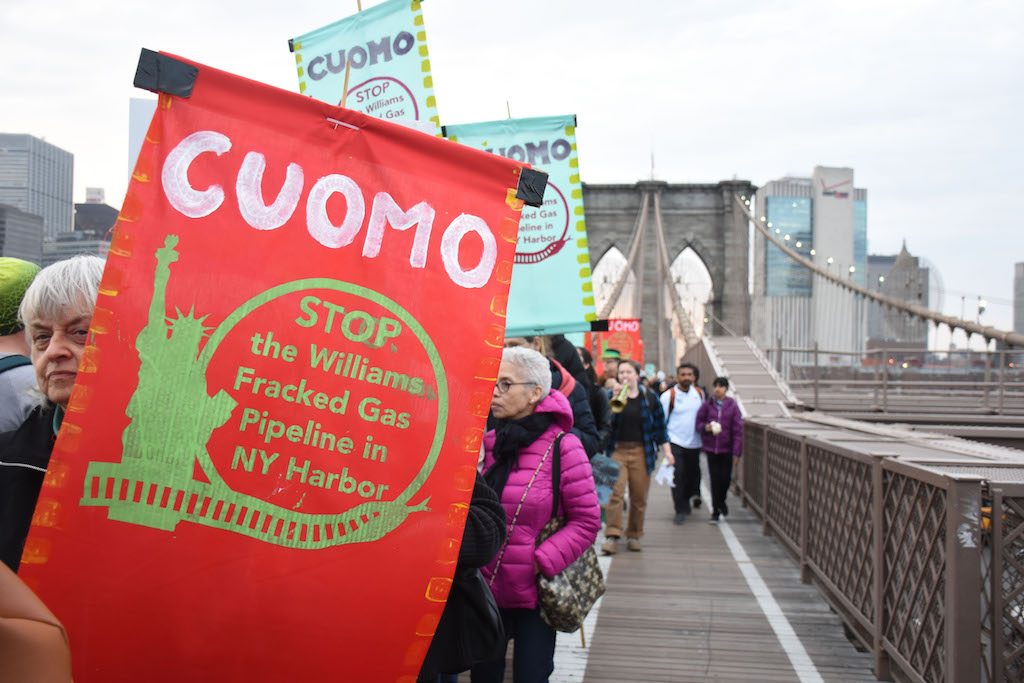
And for some, having a governor who takes a strong stance against using any fossil fuels in order to combat climate change is personal.
“My elementary school was completely flooded,” said Esther Kline, 19, about Hurricane Sandy’s impact on Torah Academy for Girls in Queens. “We didn’t have school for weeks. My apartment was flooded. I had no heat. I had no electricity for weeks. If water levels keep on rising, that can happen again.”
The governor’s ties to the Williams corporation has come under scrutiny. WNYC reported that Cuomo hired a lobbyist for the pipeline company to lead his re-election campaign, and may have received financial backing from a $100,000 donation from the company to a Democratic Party governors’ organization that supports him.
The Federal Energy Regulatory Commission gave its O.K. to the Williams Pipeline in December. Now the project is under review by the New York State Department of Environmental Conservation. D.E.C. has until May 16 to issue a water certification that would allow construction to begin this year.
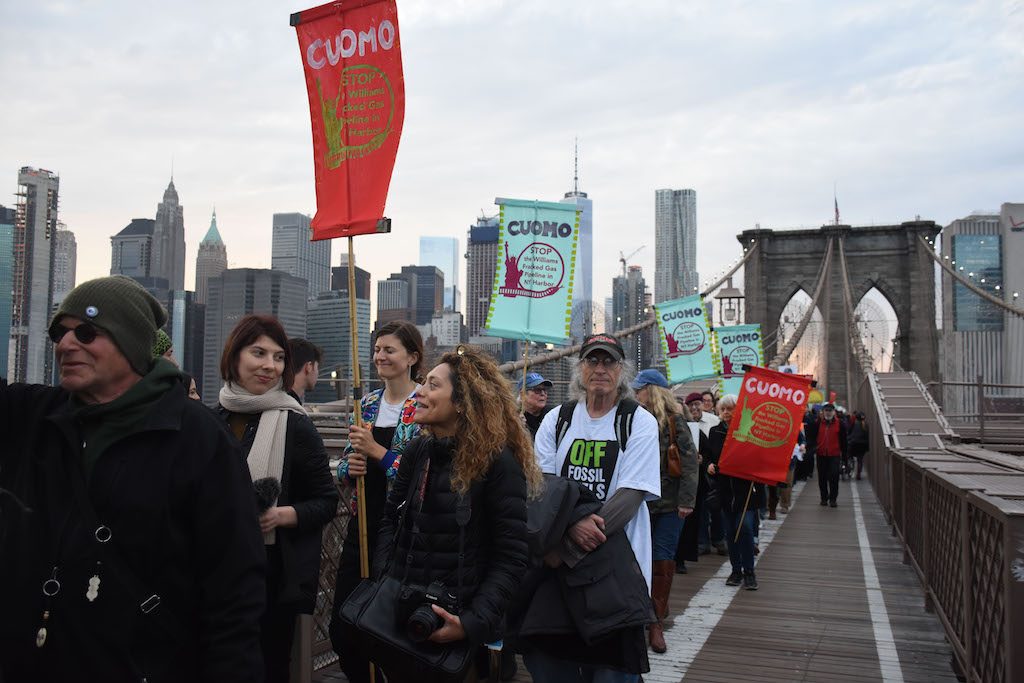
Many opponents of the pipeline are not just worried about how the pipeline would contribute to greenhouse gas emissions, but also how trenching 23 miles of ocean floor would harm marine life in New York Harbor.
“All the toxins that have been in bioremediation for the last four decades will be churned up, come right onto our beaches, where people are fishing, where whales and dolphins have been returning,” said Kim Fraczek, director of the Sane Energy Project. Sane Energy Project is one of the groups that make up the Stop the Williams Pipeline Coalition.
For other demonstrators, stopping the Williams Pipeline is essential for changing what they charge is a national culture that values profit over people.
“We have to recognize the mentality of the fat taker and the mentality of taking too much,” said Aru Apaza, from the group Seeding Sovereignty.



